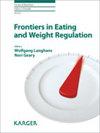Introduction - obesity and food intake: basic and clinical approaches.
引用次数: 1
Abstract
Background This introduction considers the current status of research on obesity and therapeutic strategies for it, including their relationships to the physiology of eating. Given the immense research effort currently targeting overweight and obesity, this summary is necessarily only a snapshot of a large and rapidly evolving area. It is nonetheless of immense importance since there is no sign that the obesity epidemic is abating, and because obesity per se carries so great a risk for numerous co-morbidities, such as type-2 diabetes mellitus (T2DM), several cardiovascular disorders and certain cancers. The topic is at the heart of the theme of this volume, given that obesity cannot exist unless energy intake (i.e. eating) chronically surpasses energy expenditure and since tackling aspects of eating represents, at least at present, the more approachable limb of the energy equation. As noted below, even the most successful therapeutic method now available, gastric bypass surgery, ultimately owes its efficacy to reduced energy intake. Generally speaking, obesity refers to a state of excessive body fat and implies an unhealthy or undesirable body condition. Depending on one’s perspective, obesity can be considered a symptom that carries an increased risk for numerous serious medical conditions or co-morbidities; a disease that warrants confrontation by governments, national health agencies, private benevolent groups, and third-party (health insurance) providers; or merely a warning that one should consider changing his or her lifestyle by consuming fewer calories each day [1]. Especially now that obesity has become a major focus of many health-care organizations, much new information has been forthcoming in the past few years and is beginning to influence the practice of medicine. It is important to realize that obesity is not a novel human condition; rather, evidence points to its existence in prehistoric times. What is novel is the persistent creep upward in the incidence of overweight and obesity in most human populations, a trend that is now widely considered an epidemic.导论-肥胖与食物摄入:基本和临床方法。
本文章由计算机程序翻译,如有差异,请以英文原文为准。
求助全文
约1分钟内获得全文
求助全文

 求助内容:
求助内容: 应助结果提醒方式:
应助结果提醒方式:


